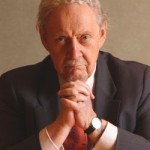Remembering Professor Bork
 Published reports of the death of Robert Bork on December 19 not surprisingly dwelled on the most controversial events in his long life in the law. As Solicitor General under President Nixon, Bork in 1975 carried out orders to fire the Watergate special prosecutor. In 1987, Bork was nominated for the Supreme Court by President Reagan but then rejected by the Senate. During the 1990s and 2000s, Bork, while employed by conservative think tanks, vigorously argued that elitist liberals were trying to take over the judiciary.
Published reports of the death of Robert Bork on December 19 not surprisingly dwelled on the most controversial events in his long life in the law. As Solicitor General under President Nixon, Bork in 1975 carried out orders to fire the Watergate special prosecutor. In 1987, Bork was nominated for the Supreme Court by President Reagan but then rejected by the Senate. During the 1990s and 2000s, Bork, while employed by conservative think tanks, vigorously argued that elitist liberals were trying to take over the judiciary.
For my own part, I recall Robert Bork from my first year of law school and from the time before he became a prominent national figure. It seems hard to believe, but I actually had Professor Bork for Constitutional Law. I also had Professor Bork for Legal Research and Writing because the Yale Law School in those distant days folded each student’s instruction in legal research and writing into an arbitrarily selected substantive first-year course.
I have no evidence that Professor Bork ever read the assorted memoranda and briefs I wrote “under his tutelage,” but I certainly recall his approach to Constitutional Law.

